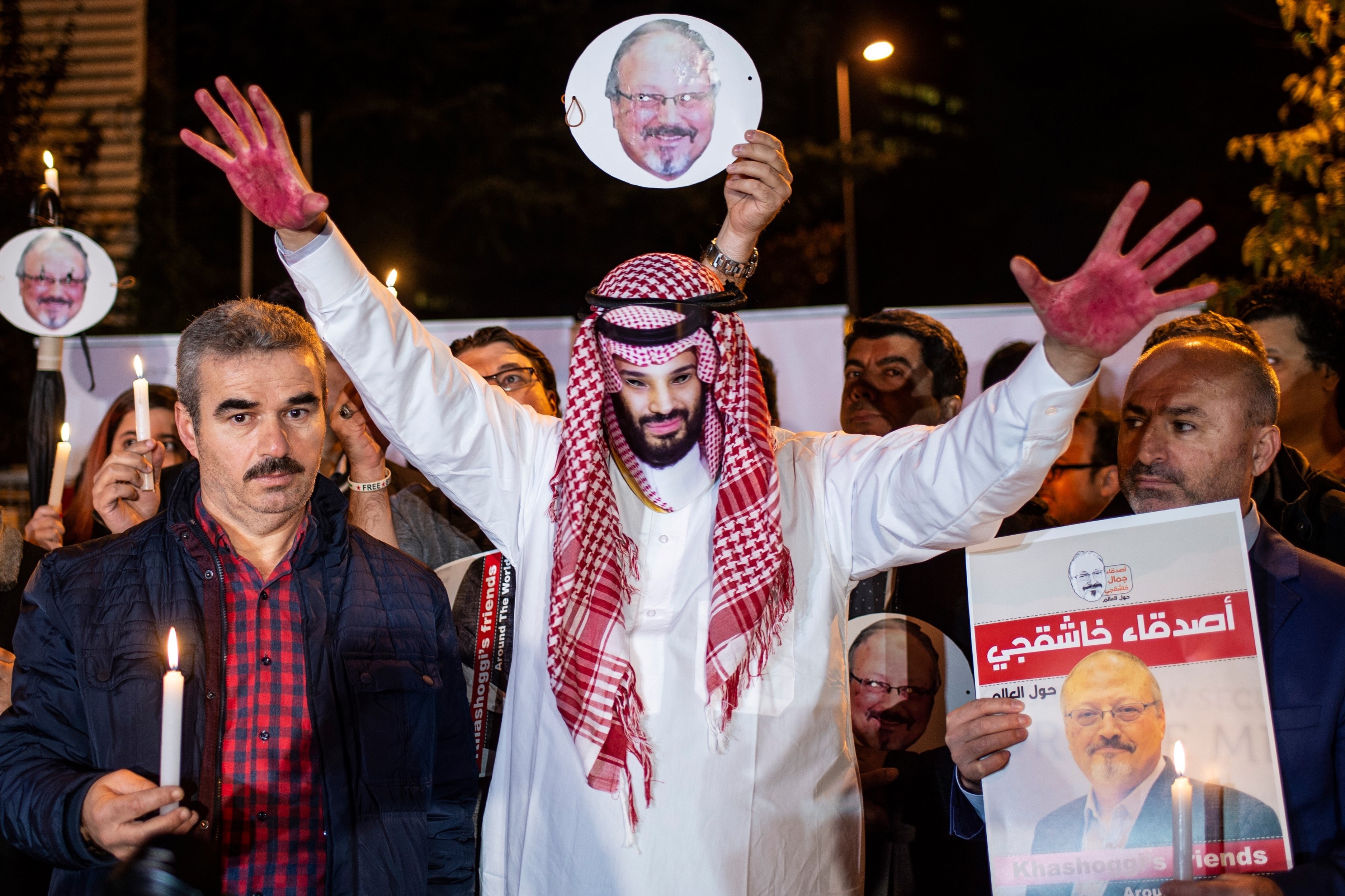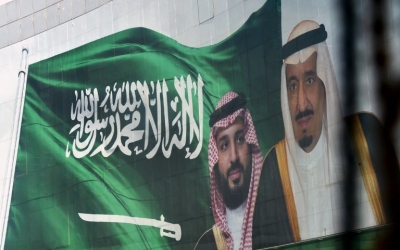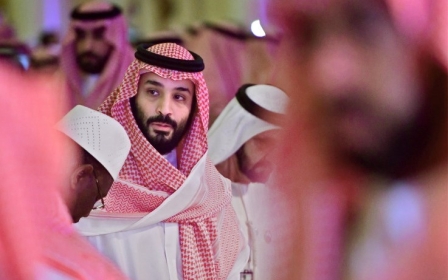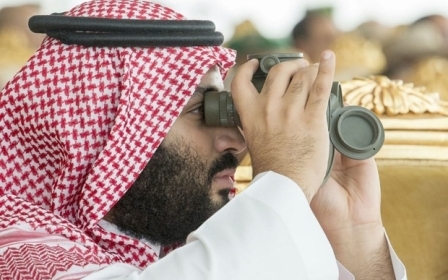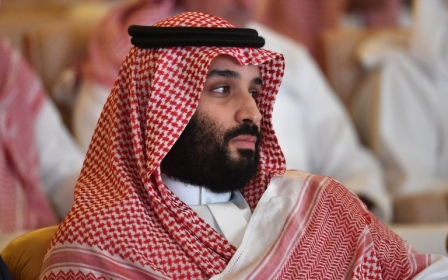Is there any truth to rumours of a rift in the Saudi royal palace?
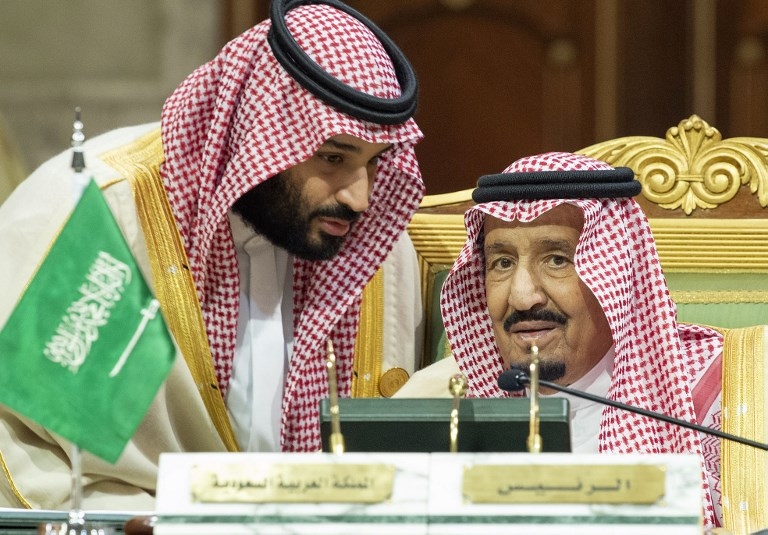
Rumours of a rift between King Salman and his son, Crown Prince Mohammed bin Salman (MBS), remain unfounded and attributed to unnamed sources.
Recently, a Guardian article suggested that 83-year-old King Salman disapproved of a move by MBS - made while the king was at a summit in the Egyptian resort town of Sharm el-Sheikh - to appoint Princess Reema bint Bandar bin Sultan as ambassador to Washington, replacing his brother, Prince Khalid bin Salman, who became deputy defence minister.
The fact that MBS was not at the airport to welcome his father back home after the February summit was also cited as an indication of a growing rift.
King in everything but name
MBS was designated deputy king while his father was abroad, as is customary in such circumstances. While King Salman was in Egypt, the Guardian article noted, his entourage was "so alarmed at the possible threat to his authority" that a new 30-person security detail was flown in to replace the existing team.
New MEE newsletter: Jerusalem Dispatch
Sign up to get the latest insights and analysis on Israel-Palestine, alongside Turkey Unpacked and other MEE newsletters
So, did the king fear that his son might stage a coup and announce himself as the new monarch while he was abroad?
The king might have thought that MBS went a bit too far, but the future of the throne was more important than the truth
This is unlikely and foolish, as MBS does not need to go so far as to depose his father. He is already king in everything but name, and having already antagonised many royal factions, he would be hesitant to further rock the boat.
Deposing his father would cement MBS as the final destroyer of royal cohesion. He would be reminded of this treacherous act until his death. But he would not feel compelled to do so, regardless, as his father’s old age and unbounded trust allows him to rule as de facto king.
What is more intriguing is the fact that King Salman has yet to name a deputy crown prince. Should something happen to MBS, Saudi Arabia does not have a deputy. Given that the king is now so old - he was hardly coherent when he read a short statement in Sharm el-Sheikh - a vacuum could emerge if MBS were to disappear.
Shielded from criticism
Reports of a growing rift remain ambiguous, serving only to strengthen MBS’s grip on power. Saudi royal affairs remain top-secret, and leaks and rumours are eagerly awaited, with a gap in the public’s understanding of how decisions are taken within the royal household.
It is in the interests of MBS to have such rumours circulate in the Western press. The crown prince benefits from the umbrella that his father provides to shield him from mounting criticism at home and abroad.
The young prince can change his mind about almost any policy issue - from the privatisation of Aramco to abolishing fuel subsidies - when negative consequences emerge. The king can then be portrayed as having expressed objections to his son’s erratic decisions. Salman gets the credit, as he is seen as still being in control, while MBS does not lose face.
If King Salman had reservations over how his son was handling the kingdom’s affairs, especially after the gruesome murder of journalist Jamal Khashoggi in Istanbul last October, he would have acted immediately. Instead, he toured the kingdom with his son by his side, sending a strong message that he retains the full support of the royal court.
The king did not puncture the many lies surrounding Khashoggi’s death, from the initial denials of the murder to the “cover-up” team reportedly sent to dispose of the body. King Salman only insisted on a Saudi investigation, just like his son.
The king supported his son and was an accomplice in shielding him from a serious, independent investigation. The king might have thought that MBS went a bit too far, but the future of the throne was more important than the truth.
Redrawing foreign policy
On larger regional issues, King Salman reportedly had a stronger reaction to the decision to move the US embassy to Jerusalem, at a time when the Saudis have moved towards greater normalisation with Israel. The king occasionally pointed to the thorny Jerusalem issue, while his son fully endorsed greater economic and military cooperation with Israel.
Last summer, King Salman reportedly told US officials that a peace plan must include East Jerusalem as the capital of a Palestinian state. MBS, however, was clearly not that bothered. His new team of Saudi journalists flooded the media with positive endorsements of the greater cooperation between Saudi Arabia and Israel.
King Salman’s reservations served to offer a semblance of reluctance to appease potential public opposition, when it was clear that Riyadh had adopted a strategy of courting Israel to counter Iran.
Despite rumours of a rift between father and son, any serious observer of Saudi internal affairs should be wary of believing unsubstantiated reports. While many observers may hope that the king one day sacks MBS, this is an unrealistic prospect.
Foreign governments should know how to deal with the crown prince now - before he becomes king - rather than waiting to see if his father sacks him. This involves redrawing foreign policy and engaging in new thinking about Saudi Arabia under MBS.
Western governments, whose economic and financial interests in Saudi Arabia will continue with or without the erratic crown prince, must reconsider their relationship with Riyadh so as not to allow the MBS and his ilk to get away with murder.
The views expressed in this article belong to the author and do not necessarily reflect the editorial policy of Middle East Eye.
This article is available in French on Middle East Eye French edition.
Middle East Eye delivers independent and unrivalled coverage and analysis of the Middle East, North Africa and beyond. To learn more about republishing this content and the associated fees, please fill out this form. More about MEE can be found here.



